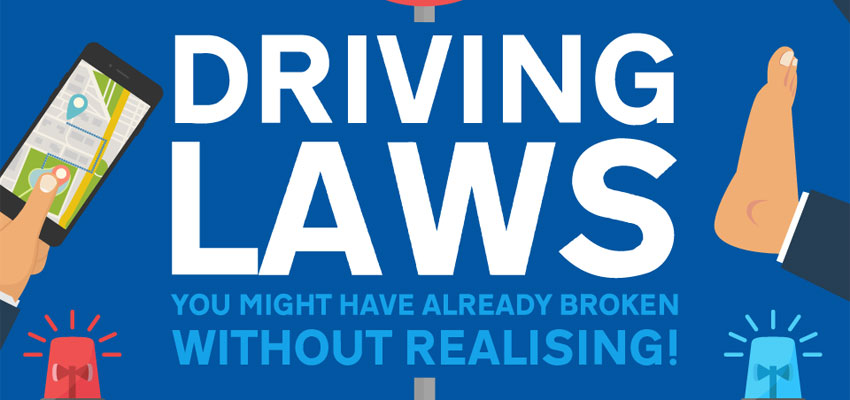One might reasonably expect the legalities surrounding driving to be a lot simpler than other laws. You exceed the posted speed limit. You don’t stop at a red light. You park on the double yellow line. Laws penalising these transgressions make sense because they fit into a logical system that is drilled isnto us by driving instructors across the land and beautifully illustrated in the handy Highway Code.
When it comes to complex things like copyright, libel and slander, property conveyancing etc, one can understand why the legal system gets a whole lot more complicated. In those areas there are no red lights, road markings or luminous signs to warn one of legal pitfalls.
But the laws of the road are clearly not as simple or obvious as we might assume and every day millions of drivers still offend without realising it. In addition to the well publicised rules surrounding mobile phones, seatbelts, number plates and speeding, there are plenty of technicalities waiting to catch you unawares. The penalties for ignoring them can hurt both your wallet and your driver’s licence.
For example, some acts of kindness are frowned upon by the authorities. The well-meant activity of warning oncoming drivers of an imminent police speed trap by flashing your headlamps is, in fact, illegal and could net you a hefty fine.
Some hazards are really quite obscure and take some lateral thinking to anticipate. Using a contactless debit card to pay for your drive-through meal is fine. However, using a contactless phone app to pay for your drive-through meal can get you into trouble.
Thankfully some rules are rooted in common sense and consideration for others: splashing pedestrians, swearing at other road users and beeping your horn in a stationary traffic jam. Even the requirement to keep Acrylic number plates clean seems fairly sensible. We suspect that few people would have strong objections to those.
Below we have collected some of the lesser known rules of the UK’s roads. There may be one or two that you've broken without even realising!

While every effort has been made to research this article thoroughly and to check the facts presented, Regtransfers publishes this article and infographic for the purpose of entertainment only. It should not be considered a valid source for legal reference. If in doubt regarding a point of motoring law, please consult your local constabulary for advice.
Related content: Check out our related post that examines where the most penalty notices are issued for various types of driving offences. Also, stay up to date on official number plate regulations
Regtransfers offers the UK's widest selection of cherished number plates for sale. While you're here why not browse our database and see what we have for you?
